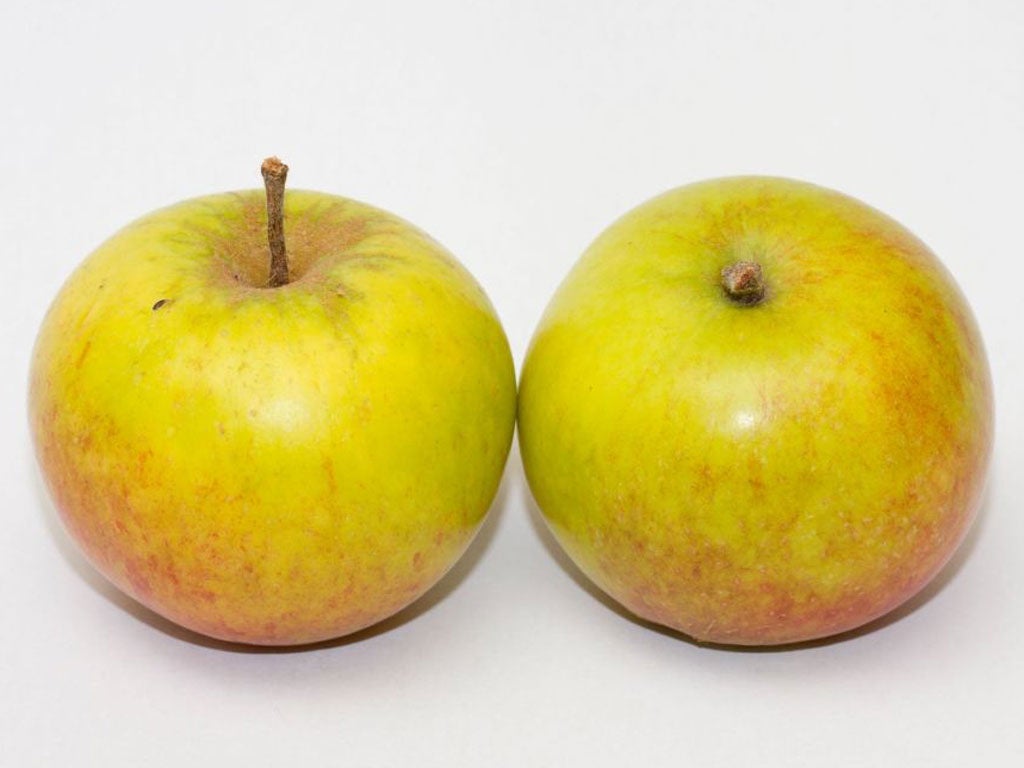Soggy summer takes a huge bite out of British apple harvest

Your support helps us to tell the story
From reproductive rights to climate change to Big Tech, The Independent is on the ground when the story is developing. Whether it's investigating the financials of Elon Musk's pro-Trump PAC or producing our latest documentary, 'The A Word', which shines a light on the American women fighting for reproductive rights, we know how important it is to parse out the facts from the messaging.
At such a critical moment in US history, we need reporters on the ground. Your donation allows us to keep sending journalists to speak to both sides of the story.
The Independent is trusted by Americans across the entire political spectrum. And unlike many other quality news outlets, we choose not to lock Americans out of our reporting and analysis with paywalls. We believe quality journalism should be available to everyone, paid for by those who can afford it.
Your support makes all the difference.Britain's sodden summer is producing one of the country's worst fruit harvests, with shortages and higher prices on the way for favourites such as Cox's Orange Pippin apples.
Heavy rains led to the wettest three-month period of April, May and June since modern rainfall records began in 1910, and this is the crucial period for fruit production. It is the time when the flowers on fruit trees are pollinated by insects such as bees, and turn into tiny fruitlets which are extremely vulnerable to bad weather. This year, pollination was affected by the downpours of April and early May – bees are not active in the rain – and the young fruits themselves were, in many cases, knocked out by late frosts, heavy rain and hail.
It all adds up to a desperate picture for some British fruit farmers, who in some instances have lost as much as 90 per cent of their crop. Apples such as the Orange Pippin are particularly badly affected.
The trade body English Apples & Pears (EAP) estimates that nationally, production of two of the biggest favourites, Cox and Braeburn, will be between 25 and 30 per cent down from their respective totals of 31,000 tonnes and 20,000 tonnes last year. It is likely that there will be about 17 per cent fewer native English apples on the shelves compared with last year. This will be seen not only in supermarket supplies, but in prices, and a 1kg (2.2lbs) bag of apples is expected to shoot up from about £1.70 to possibly more than £2.
There is some concern that the apple shortage might affect the cider business, not least because, according to EAP, apple production across Europe is down by about 15 per cent. Furthermore, many of the apples and other types of fruit and vegetables are expected to show more blemishes than normal and the National Farmers' Union has called on supermarkets to relax standards for cosmetic appearance. The major chains have agreed.
Soft fruits such as plums and cherries have also had a very bad year. Depending on the orchard, plums are between 20 and 80 per cent down in volume; some of the fruit has been cracking and splitting on the tree as excess water absorbed by the roots causes it to swell up too quickly.
Some fruits, however, have still done reasonably well, such as raspberries, which can take more rain, and strawberries, which are largely grown under the cover of polytunnels.
There are even a few winners: blackcurrants are likely to have profited from all the rain but perhaps the most unusual winner is English tea. The Tregothnan Estate in Cornwall, believed to be the only commercial tea plantation in Britain, says it is expecting a bumper harvest.
Join our commenting forum
Join thought-provoking conversations, follow other Independent readers and see their replies
Comments